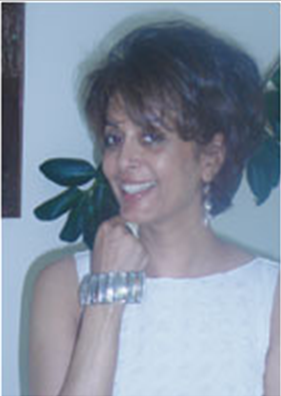Fawzia Afzal-Khan
This is a collection of articles archived for the excellence of their content. Readers will be able to edit existing articles and post new articles directly |
Fawzia Afzal-Khan
Ink Paper Think
By Sehba Sarwar
Fawzia Afzal-Khan, Professor of English at Montclair State University, has authored four books and numerous articles. Also a trained vocalist in Indian Classical music, she often performs in New York with her band, Neither East Nor West.
What have you recently published? What are you working on now?
My most recent publications include Shattering the Stereotypes: Muslim Women Speak Out (Interlink Books, 2005), and A Critical Stage: The Role of Secular Alternative Theatre in Pakistan (Seagull Books, 2005), my critical/scholarly book on Pakistani parallel theatre and the women’s movement. Presently, I am finishing up my memoir. I have received a favourable response from Syracuse University Press and am looking forward to bringing it to the production stage soon. Women Unlimited Press may buy the South Asian rights for it. That will be great!
What are your writing habits? Your work style? Work impediments?
Well... since I work in so many different genres...non-fiction, drama, poetry, scholarly criticism etc — I cannot say I have very uniform writing habits. I write poetry mostly when inspired, rather than as a craft I practice at steady times during each work day... the journalistic writing is often in response to particular events and so I have to clear my desk of all other commitments when something happens which I feel the need to respond to in writing. Sometimes I have long-term projects I have to finish or continue working on over many years — those I usually take up on a regular basis over the summers when I have time off from teaching... and some scholarly commitments I take on and then complete when the deadline is looming. So I would say that my habits vary depending upon the type of project and the time of year.
Share your experience with the publishing world (Pakistani, Indian, US, beyond).
I’ve published in a variety of venues ranging from scholarly journals in the US, India and Pakistan, as well as larger book projects with university presses in the US, and trade publishers like Interlink and Seagull in US and India. I’ve also published in online journals like Counterpunch and written and published in newspapers and magazines like Friday Times, The Nation, Herald etc. Some of my creative work (poetry and memoir) has appeared in specialised journals primarily in the States.
Scholarly journals take a long time, and of course, this kind of publishing does not make any money — but one does it for the sheer exhilaration of completing a research project. The other stuff —my poetry, my journalistic/analytic pieces, my memoir — at this stage of my life having published enough I am often invited to submit poems and articles by prestigious journals or book editors. One such example is of being solicited to send a poem for inclusion in the important new anthology of Eastern poetry, Language for a New Century (Norton).
In Pakistan, I was not pleased by the way my manuscript for A Critical Stage was handled. I had submitted it to OUP, and as is standard practice, they sent it out to be evaluated by peers.
However, their evaluators took almost a year, and then the reviews were pathetic! That is when I decided to go with Seagull of India — even though my work in this book was the first of its kind on Pakistani theatre, and ought, by rights, to have been published by a Pakistani-based publisher. Anyhow, Seagull of Calcutta did a fine job of producing the book, and the editorial help I was given was wonderful and so professional. Distribution and marketing, however, left a lot to be desired. I am glad that OUP wants to reprint this book in Pakistan now. It has received very favourable reviews, including a long and engaging one by Girish Karnad, a leading playwright and drama critic of India.
Anything else?
I am currently developing a one-woman show, which will also focus on issues around gender and sexuality. I plan to use video footage a friend and I shot around Empress Market in Karachi. This performance will draw on French feminist theory as well as on Christina Rossetti’s poem ‘Goblin Market’ — to suggest the ways in which women’s desire in every culture and time period has been constructed in reference to normative patriarchal heterosexuality.
